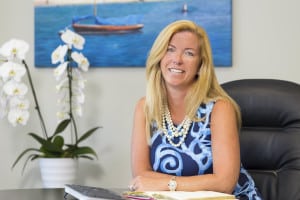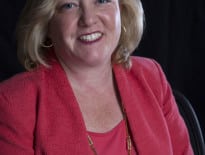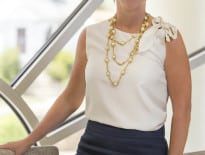Property management can be a complicated job – but it’s even more so when your portfolio includes affordable housing with high-needs residents.
Communication, respect and humility are essential, said Melissa Fish-Crane, principal and COO of Peabody Properties.
“You have to have really strong soft skills. In our business, you’re dealing with people from all walks of life,” she said. “[You have to] be compassionate about what people are going through.”
That includes formerly homeless veterans, many of whom are struggling with addiction issues, as well as elderly residents and others who need daily personal care, homemaking services or nurse visits. Peabody Resident Services reaches more than 1,650 clients in hundreds of communities. As COO, Fish-Crane leads the company efforts to coordinate its resources and oversee field management.
She’s driven by a sense of mission – after all, this company is in her blood. Her father, Ed Fish, launched Peabody Properties in 1976. Fish-Crane started work in the family business as a 14-year-old, stuffing envelopes and doing odd jobs. Now she’s in a leadership role alongside her sister, CEO Karen Fish-Will, also a 2017 Woman of FIRE.
The sisters are carrying their father’s legacy forward, expanding Peabody’s portfolio and opening it up to new avenues. The sisters have worked to develop four residences for homeless veterans, with more in the works. Fish-Crane’s strength is in her business acumen and high level of expertise, which make her a reliable leader, said Jim Farrell, spokesperson for the company, who nominated both sisters.
And this business requires coordination – affordable housing comes with more extensive regulatory requirements, and Fish-Crane’s work involves meeting the needs of investors, lenders, residents and employees, to name a few.
Providing stable housing can mean things like putting residents in touch with Meals on Wheels or connecting them with mental health assistance, she said.
Another major component of her work involves listening to staff to ensure the residents’ needs are being met. Empowering the 450-person staff has been a major focus – management does listening tours at every property to get feedback and hear ideas. “We’re only as good as the people with the boots on the ground,” she said. “If something isn’t working successfully, we want to hear ideas for how to improve.”
That emphasis on respect and communication holds for the working relationship between Fish-Crane and her sister as well. They have complementary skill sets, she noted: Fish-Will is more creative and marketing-oriented, while Fish-Crane’s skills lie in operations. It helps that they’re also best friends.
“There can be a lot of challenges with family-run businesses, but Karen and I are fortunate that we have the relationship that we do,” she said.
And regardless of their individual roles, they share in their goal for the company.
“When we put our name on a building, we want to make sure it’s a place we would live ourselves.”







